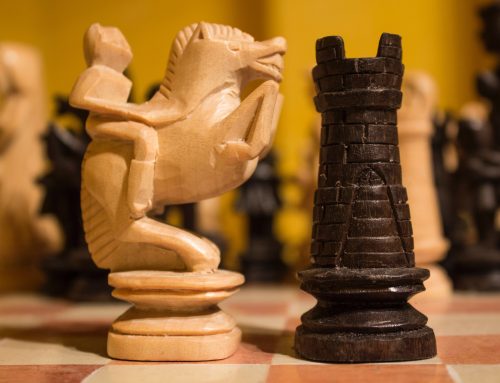There is nothing wrong with failing as long as you really tried and learned from the experience. That way you won’t repeat the mistake on your next attempt.
But many people don’t give it their all and don’t learn from their failures when starting that business, writing that book, or losing that 20lbs. It’s no surprise then that they repeat the same mistake the next time they try; often with a drunken New Year’s eve resolution. “Damn it! I’m fed up looking this way. This year I’m going to lose weight! Hic.”
You know how that plays out.
This type of repeated disappointment can lead to a culture of failure that hurts dignity and self-esteem. The voice in your head tells you that it’s your fault and that something must be wrong with YOU. “You’re weak, undisciplined, incompetent, a failure, and you deserve to be unloved, overweight, unattractive, and lonely.” Ouch.
Left unchecked that inner critic will declare Jihad on your future.
So if you’d like to win the next time, try this simple piece of advice: Don’t focus so much on the goal as on the practice(s) to achieve it.
Take your eye off the goal
… long enough, and often enough to pay attention to what you need to be doing on a daily or regular basis.
Sounds counter to what you know: “Keep your eye on the ball,” but it’s why we’ve been failing repeatedly. There are two reasons why keeping your eye on the prize can cause you to fail.
- Keeping your eye on the prize can discourage you because you see the gap: that distance or missing between where or what you are now and where you want to get, or what you want to be.
- Keeping your eye on the prize de-emphasizes what we need to be doing in the moment to close that gap. We focus on the fantastic body and not on what we need to repeatedly do to have it. New practices require nurturing until they become habits, and without taking exquisite care of the new things you need to do every day, your old habits quietly stifle them while you sleep and pretty soon you’re back to doing only the old habitual things.
To be clear, I’m not saying to not have goals, just use them to give direction and purpose to what you should really be committed to.
Commit to the practice
Shifting your focus from your goal to their required daily or weekly actions (practices) allows you the gift of immediate feedback and the confidence that your goal will happen, sooner or later.
Focussing on your practice—providing it is the right practice which I’ll assume for this post that it is—allows you to improve the practice, to observe its results and improve it, adapt it, or even kill it in favour of a new one if the new one promises better results.
Focussing on your practice allows you to think in detail about what you need to do to reach your objective. It also doesn’t allow you to fall into the trap (at least not so easily) of giving up when you’re not winning.
It focuses you on what you’re doing NOW not whether the objective is possible or whether there is something wrong with you. You simply make changes to the practice (1) do it differently, faster, slower, more or less frequently (2) add something to it (3) take something from it.
So you commit to
- your daily exercise and salad and less on the scale.
- your daily writing practice and less on the published book,
- spending time every day with your child or loved one, and less on the great relationship that you’d like to have.
This is why companies have visions and missions. The vision is where the company is heading to, and the mission is the commitment to what the company does every day; the mission is the company’s practice to get to the vision.

Gives you an early warning signal
Focussing on the practice also has the advantage of being your canary in the mine. It’s your early warning signal that you’ve stopped moving towards your objective. The first day you stop doing your practice is the earliest sign you can get that you’re failing. Focusing on your objective has those first missed practices go un-noticed until you get to the next New Year when you’re forced to confront that you’ve failed … again.
Practice facilitates continued growth
Another reason it’s important to focus on your practice and less on the objective is that goals are not permanent resting places. Once you achieve the goal, it then becomes either a challenge of sustaining the achievement e.g. keeping the weight off, or of what’s next. So you wrote that one book, what’s the next book going to be about?
If you’ve developed effective practices of eating and exercise you’ll never have to worry about keeping the weight off once you’ve lost it, and you can take on a bigger challenge.
So learn to enjoy your practice, become sincerely interested in perfecting it, track its interim results—key performance indicators—and something amazing may happen. You’ll achieve that elusive goal almost as a side benefit, and New Year’s eve may find you celebrating the past year instead of resolving to do better in the next.






Any thoughts? Contributions/acknowledgments welcome.